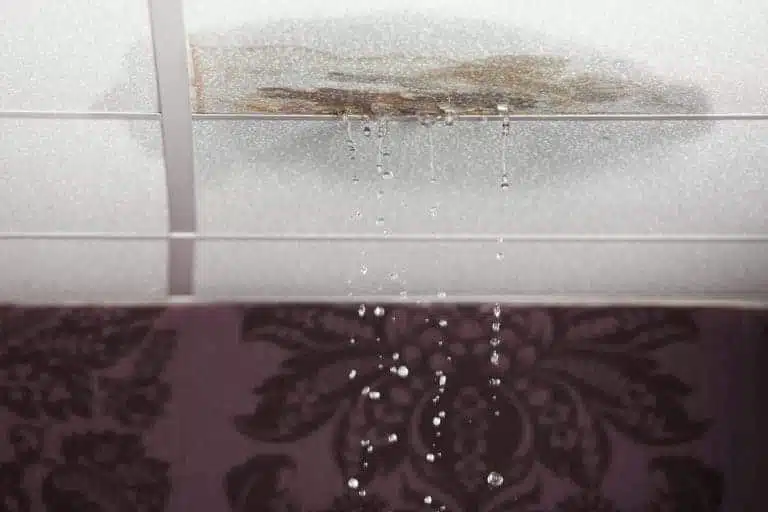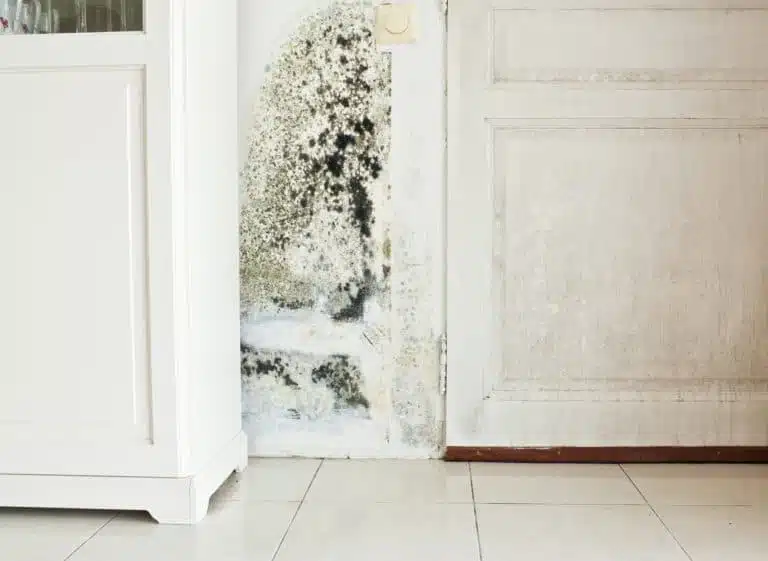Water Damage Attorney
Water damage in Florida and Georgia doesn’t just come from hurricanes. Pipe bursts, faulty appliances, plumbing leaks, and more can also damage your home in ways that are costly to repair and can become more expensive as time goes on. This kind of water damage is usually covered under a standard homeowner’s insurance policy–but that doesn’t mean that insurance companies are interested in playing fair when it comes time to pay.
Home » Insurance Dispute Lawyers » Property Damage Attorneys » Water Damage Attorneys
If your home has been damaged by water, the last thing you’ll want to do is fight with your insurance company. Farah & Farah’s water damage attorneys have helped people across both Florida and Georgia put their lives and homes back together. Call us at any time or schedule your free consultation online.
Not All Water Damage Is the Same
When you come home and find water everywhere, your first thought may be that your home has flooded. It may look like a flood of water to you, but your insurance company will make a distinction between flood damage and water damage that has nothing to do with the amount of water involved. This difference is important because some floods require extra flood insurance while others are covered under your normal homeowner’s insurance.
A true flood in insurance terms involves rising water coming from outside your home, such as a storm surge from a hurricane or heavy rain pooling at the foundations. This is the type of water damage that requires a separate flood policy. The type of water damage that comes from inside your home, which is covered by a standard homeowner’s insurance policy, is often called an “in-home water disaster.” These are common and accidental, but can still be devastating.

Common Real-World Examples of In-Home Water Disasters
- A toddler leaves a faucet running, flooding a bathroom
- A pipe bursts suddenly, flooding the drywall and flooring
- The washing machine starts leaking water, or the dishwasher overflows
- Your ceiling leaks after a storm damaged the roof
- The AC condensate line clogs, backing up water into the wall
These are real-world scenarios that catch people off guard every day. They’re sudden and accidental, and the water either comes from within the house or is allowed into the house by damage to the parts of the home that protect it, like the roof.
Top-Down vs. Ground-Up Water Damage
When it comes to what’s covered under your standard homeowner’s insurance policy, it can be helpful to think of it this way:
- Top-down damage (like a roof leak, pipe burst, or overflowing appliance) is typically covered because it originates from either within the home or from above due to a covered peril.
- Ground-up damage (like water seeping into the basement due to a storm surge) is more likely to be classified as flooding, which generally requires separate flood insurance.
The distinction between these two is critical. Your insurance company may try to claim that water damage is ground up, even if it may have actually been top-down, especially if the water comes from a storm, but even when the water clearly came from within your home.
If you come home to a mess and you aren’t sure where the water came from, don’t assume you’re out of luck if you don’t have flood insurance. Let us take a look at your policy and the damage, and we’ll help you understand what’s really covered.
What Water Damage Is Covered Under a Standard Homeowner’s Insurance Policy?
Some water damage, like that caused by a malfunctioning appliance or a burst pipe, should be covered by a standard homeowner’s insurance policy; no extra policy needed. Water damage coming from hurricanes or floods, for example, may require a policy of their own, especially in areas prone to flooding. Depending on your location, standard homeowner’s policies may have different coverages. You’ll need to check your own policy to be sure, but the following are types of water damage that are typically covered by the standard policy.
- Burst pipes (due to sudden pressure changes or freezing)
- Sudden plumbing failures (like ruptured supply lines or broken joints)
- Overflowing toilets, sinks, or bathtubs (caused by accidental backups or clogs)
- Malfunctioning household appliances that may suddenly leak (such as washing machines, dishwashers, or refrigerators)
- HVAC system leaks (from clogged condensation lines or sudden mechanical failures)
- Blocked gutters (if the overflow causes interior damage)
- Roof leaks (from covered perils like hail, fallen trees, or wind)
- Defective windows that suddenly allow water intrusion
- Fire-suppression efforts (including sprinkler systems or fire department hoses)
- Foundation leaks
Note that your policy may not cover the cost of repairing or replacing the source of the damage, only the damage that resulted. For example, if you had a pipe burst in your home, the policy may cover the water damage but not the cost to repair or replace the pipe.
Is Storm Damage Covered by Homeowner’s Insurance?
In many cases, yes, water damage that came from a storm may very well be covered by your homeowner’s insurance policy. Generally, storm damage from regular, non-hurricane storms is covered, although depending on your location, the exclusions that require separate coverage for floods and hurricanes may also apply to regular storms as well.
What Water Damage Is Not Covered Under a Standard Homeowner’s Insurance Policy?
When it comes to water damage, the source of the water plays a major role in determining whether or not the damage is covered. While every policy may be slightly different, there are some commonalities in what is excluded.
Water Exclusion Clause
The water exclusion clause of your homeowner’s insurance policy will list what water damage your policy doesn’t cover. These clauses typically exclude water damage from perils like earthquakes, floods, hurricanes, etc., from your policy. The type of peril that is excluded tends to be the natural disaster variety. Typically, if you live in an area prone to a particular kind of disaster, like Florida is with hurricanes, you may be required either by your insurance company or by law to have additional policies like flood insurance.
Hurricane-Related Water Damage
Hurricane-related water damage generally isn’t included in a standard policy. If it is, then there may be a separate deductible for damage from a hurricane that doesn’t count towards your standard deductible. If it’s not included, then you may be required to pay for an additional hurricane insurance policy.
Flood-Related Water Damage
Even outside of Florida, flood-related water damage is typically excluded from homeowners’ insurance policies. This means that floods caused by weather aren’t generally covered by the standard policy. Flooding within your home from a pipe burst or some other covered peril, on the other hand, is typically still covered.
Lack of Maintenance
Water damage caused by a lack of proper maintenance is also excluded from most homeowners’ insurance policies. Every homeowner is responsible for maintaining their own home, and if a failure to do so is what causes damage to occur, then the insurance company won’t cover it.
Gradual Leaks
While your insurance policy most likely covers water damage from sudden events like a pipe burst, it may not cover gradual water damage. For example, the gradual deterioration of a pipe or a slow leak may be excluded from your policy. The insurance company may consider these to be the homeowner’s responsibility to discover during regular maintenance.
What To Do if Water Has Damaged Your Home
We always recommend that your first phone call after water damage should be to us, not your insurance company. You don’t have to wait until your insurance company has given you a lowball offer or delayed payment to call your attorney. You can get Farah & Farah involved from the very beginning so that we can:
- Support you every step of the way
- Help you interpret the terms of your homeowner's insurance policy
- Help you file your water damage claim
- Negotiate on your behalf with the insurance company
- File suit if necessary
Working With a Water Damage Attorney Makes a Difference
Especially in areas prone to hurricanes, like Florida, not all water damage is considered the same by your insurance company. Whether it comes from a hurricane, a flood, a steady leak, or a burst pipe matters a great deal in terms of whether your homeowner’s insurance policy will cover damage from that kind of water.
Working with an experienced water damage attorney can help you not only figure out which policy covers what but also hold your insurance company accountable if they’re trying to claim that covered water damage isn’t, in fact, covered.
Filing a Water Damage Claim Step-by-Step
Before you consider any kind of legal action, however, you should start by filing a claim with your insurance company. You’ll also want to make sure that you take all of the proper steps in the claim-filing process so you don’t inadvertently give your insurance company a reason to deny your claim.
Step #1: Assess the Damage
Water damage, in particular, can be difficult to assess. Water can seep into hard-to-reach or impossible-to-see locations and go undetected until it’s caused extensive mold and mildew problems within your home. Hiring a professional to come out and inspect the true extent of the damage can not only detect hidden problems early but can also prove the actual cost of the damage.
When you file a claim, your insurance company will send out an inspector, but this adjustor may be biased in favor of the insurance company. Hiring your own (or working with our) independent inspector can help show if the insurance company tries to lowball your offer.
Step #2: Document Everything
It’s vital to document all damage. This includes photos and videos of the damage as well as any records from the inspector. Keeping thorough records of the damage can help to prove your case should your claim be denied or underpaid.
You should also make sure to keep records of all maintenance done to your house. This can help undercut any claims the insurance company makes that a lack of maintenance caused the damage. These records can also help to demonstrate whether you’ve already met your deductible.
Step #3: Review Your Insurance Policy
Before you actually file the claim, you should know what, exactly, your policy covers. Whether the damage is covered by your standard insurance policy or whether it requires an additional rider, such as a flood damage policy, may change how you file the claim, as well as the deductible or how much your insurance company may cover.
Step #4: Notify Your Insurance Company
Water damage can grow significantly worse and more costly if you delay repairs. On top of that, your insurance company may have requirements for how quickly you have to file the claim. For both of these reasons, it’s imperative that you file as quickly as you can. Our water damage lawyers can help you through the whole process from the damage assessment to the filing process, so you’ve got someone on your side.
Common Tactics Insurance Companies Use
Farah & Farah’s water damage lawyers have a lot of experience dealing with insurance companies. Some of our attorneys have even begun their careers in law working for insurance companies, so they know their playbooks inside and out and can bring that knowledge to work for you. The following are some tactics that insurance companies may use against you.
- Blaming pre-existing damage
- Claiming it was caused by a gradual leak
- Citing a policy exclusion
- Delaying the claims process
- Lowballing the estimate
- Misclassifying the cause of the damage
- Offering a quick payout with strings attached
- Denying responsibility
- Depreciating your property’s value
- Pushing arbitration
- And more...
Delaying Water Damage Repairs
Water damage can get expensive to repair very quickly. Any delays can mean that the damage gets worse or causes the growth of mold and mildew, which then just costs more to repair and clean. Insurance companies delaying payment for water damage can be devastating for this reason. Homeowners may feel pressured to accept the first offer that comes their way simply because they cannot afford to wait.

What To Do if Your Water Damage Claim Is Denied
Millions of homeowners across the country pay into insurance policies so that when something happens to their home, their insurance company will be able to cover it for them. That’s what their insurance policy is for, after all. But insurance companies are still businesses that want to make a profit, and they can’t make money if they’re paying out a lot of money in claims. Some insurance companies may deny claims in bad faith in order to increase their profits.
If your claim has been denied, you’re not necessarily out of luck. There are steps you can take, and an experienced water damage attorney can help you.
#1: Review the Denial Letter
If you’ve had your water damage claim denied, the first step is to thoroughly read the denial letter. Your insurance company is required to explain why it denied the claim. That reason may be disputable, especially if you have evidence to the contrary. You’ll also want to compare the denial letter to your policy to see if the insurance company has misapplied an exclusion or misinterpreted its own rules.
#2: File an Appeal
You always have the option to file an appeal. You’ll need documentation of the repairs, ideally the assessment of an independent inspector who isn’t working with the insurance company, and the photos that you took of the damage to prove your case.
#3: Hire a Water Damage Lawyer
We recommend talking to an attorney right away, even before you’ve filed the initial claim. That way, you benefit from not just our expertise in dealing with insurance companies, but you also have someone on your side the entire time. We can help you gather the evidence you need, file the claim in the first place, file an appeal if necessary, and even take the insurance company to court if that’s what’s needed.
Has Your Water Damage Claim Been Denied? We're Here To Help
If your water damage claim has been denied, we can help. We stand against companies that put profit over people’s lives. We can help negotiate a better offer and determine whether your insurance company acted in bad faith. If a lawsuit becomes necessary to hold the insurance company responsible for covering the full amount of the damage, we’ll stand by your side every step of the way.

Farah & Farah’s team of skilled lawyers is here to help fight against unscrupulous insurance companies that deny claims in bad faith in order to put profit over people. We’re experienced at taking on insurance companies and want to help you get the compensation you deserve. Contact us online or call us 24/7 to schedule a free consultation. You won’t have to pay anything unless your case is successful.

free case review
Related Pages
Client Testimonials

Related Blogs













